Goss lauded as blue-chip pick
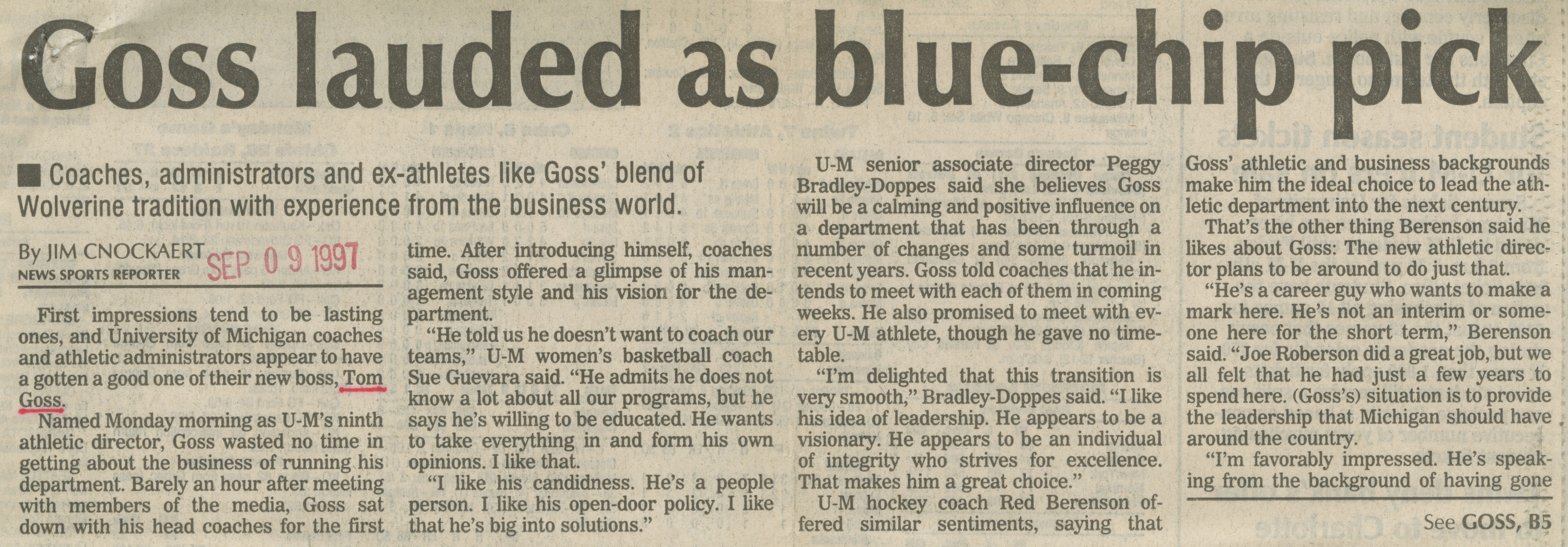
Parent Issue
Day
9
Month
September
Year
1997
Copyright
Copyright Protected
- Read more about Goss lauded as blue-chip pick
- Log in or register to post comments
Michigan Puck Chasers Out To Make Lead Secure
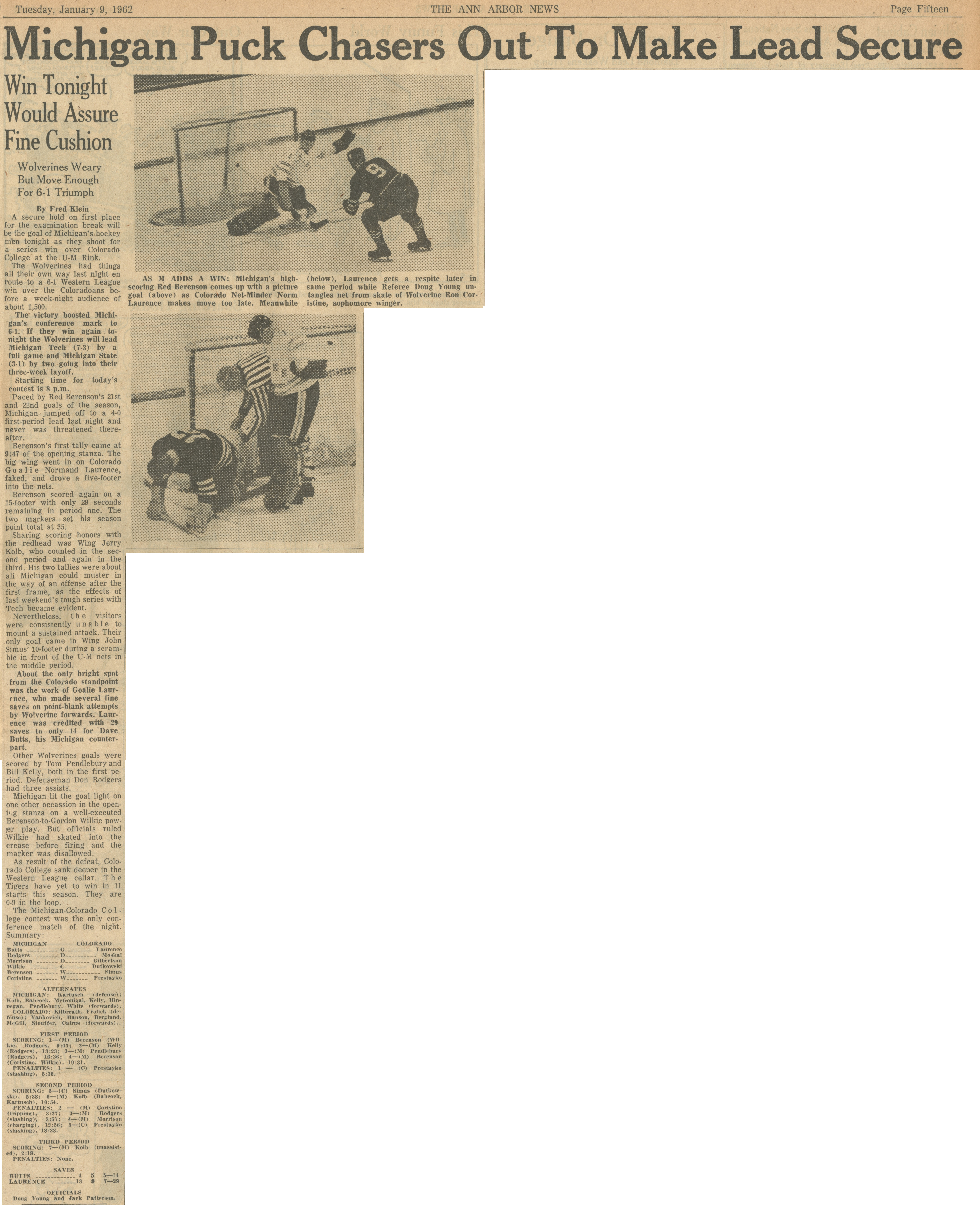
Parent Issue
Day
9
Month
January
Year
1962
Copyright
Copyright Protected
- Read more about Michigan Puck Chasers Out To Make Lead Secure
- Log in or register to post comments
M Pucksters Take Break With Big Lead
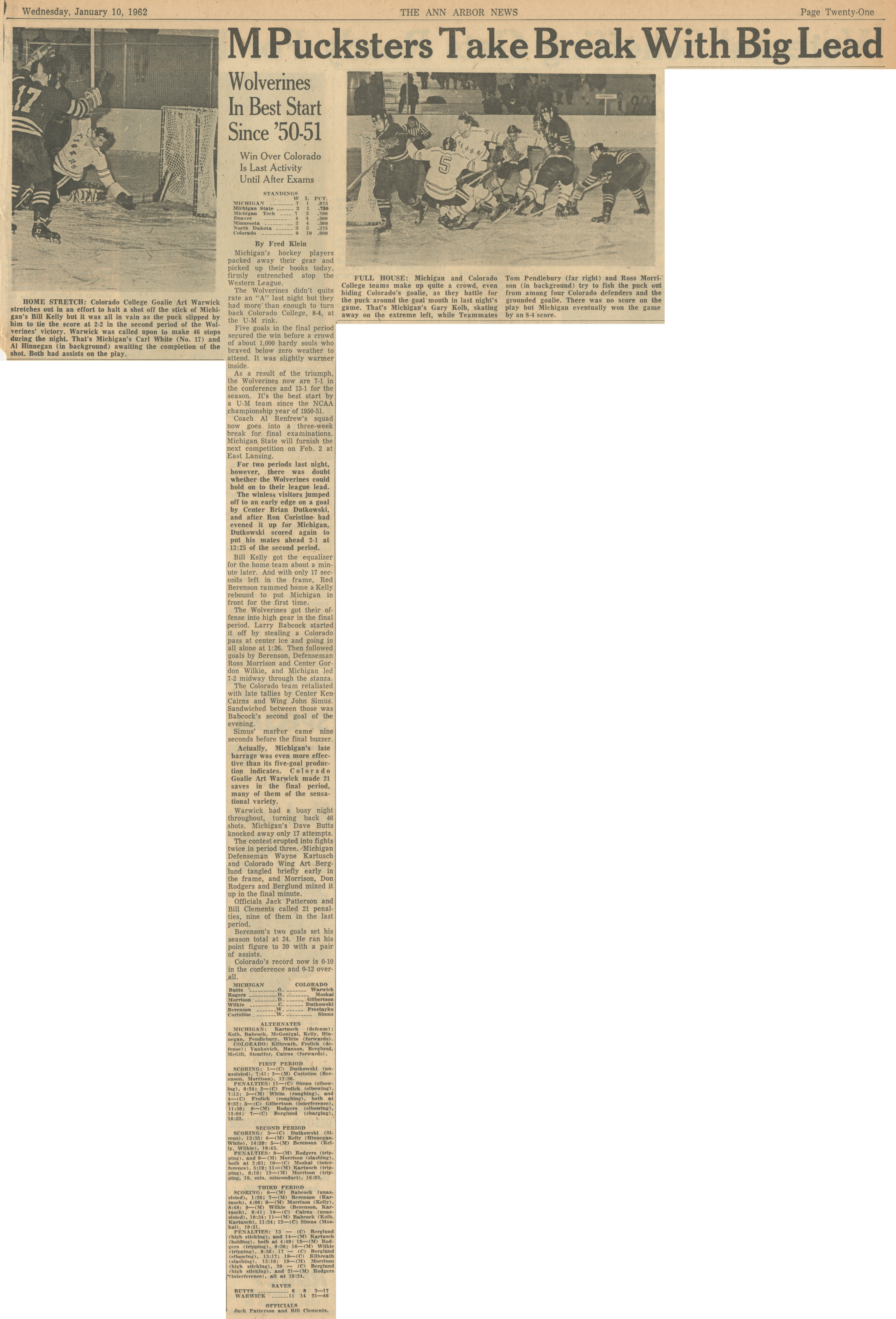
Parent Issue
Day
10
Month
January
Year
1962
Copyright
Copyright Protected
- Read more about M Pucksters Take Break With Big Lead
- Log in or register to post comments
Three-Week Layoff No Handicap To M Skaters

Parent Issue
Day
3
Month
February
Year
1962
Copyright
Copyright Protected
- Read more about Three-Week Layoff No Handicap To M Skaters
- Log in or register to post comments
Battered Wolverines Head For Hockey Showdown
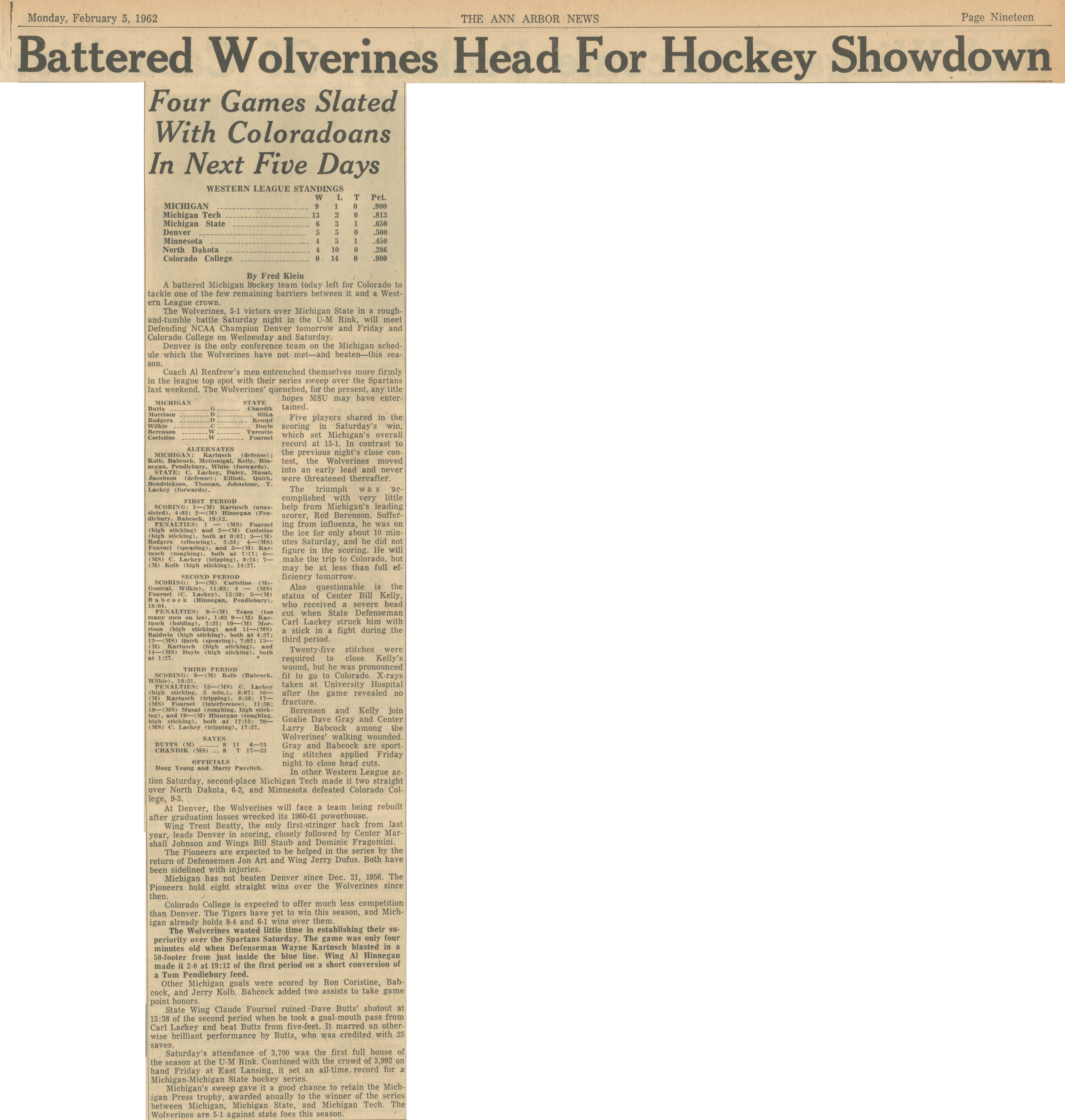
Parent Issue
Day
5
Month
February
Year
1962
Copyright
Copyright Protected
- Read more about Battered Wolverines Head For Hockey Showdown
- Log in or register to post comments
Newcomers Sparkle In Successful M Puck Opener

Parent Issue
Day
28
Month
November
Year
1961
Copyright
Copyright Protected
- Read more about Newcomers Sparkle In Successful M Puck Opener
- Log in or register to post comments
Wolverine Skaters Go After No. 5 Here Tonight

Parent Issue
Day
9
Month
December
Year
1961
Copyright
Copyright Protected
- Read more about Wolverine Skaters Go After No. 5 Here Tonight
- Log in or register to post comments
Puckster Pacing Michigan Winter-Sport Teams

Parent Issue
Day
11
Month
December
Year
1961
Copyright
Copyright Protected
- Read more about Puckster Pacing Michigan Winter-Sport Teams
- Log in or register to post comments
Whew! M Pucksters Have Close One
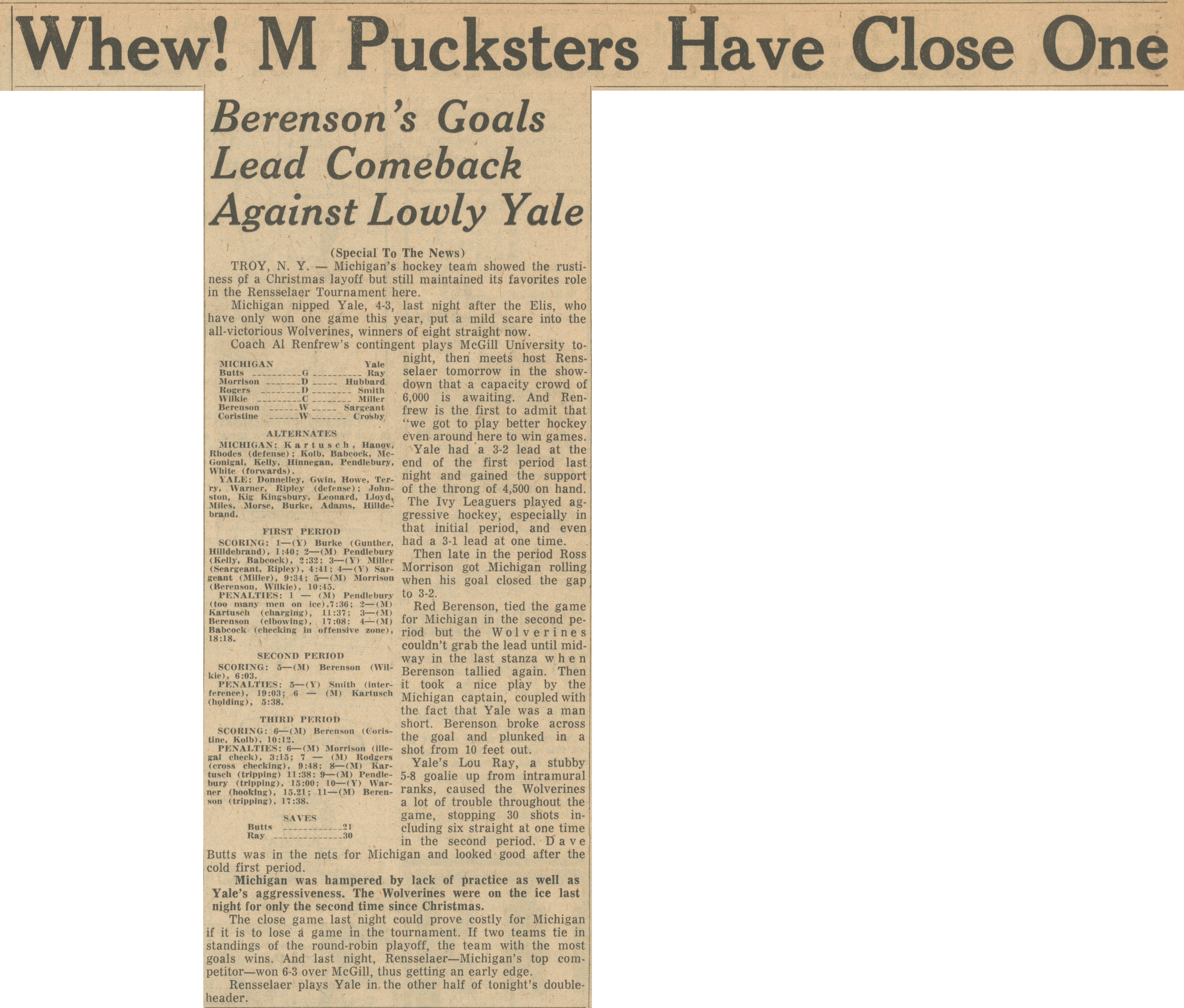
Parent Issue
Day
29
Month
December
Year
1961
Copyright
Copyright Protected
- Read more about Whew! M Pucksters Have Close One
- Log in or register to post comments
Michigan's Off And Running Again In Hockey
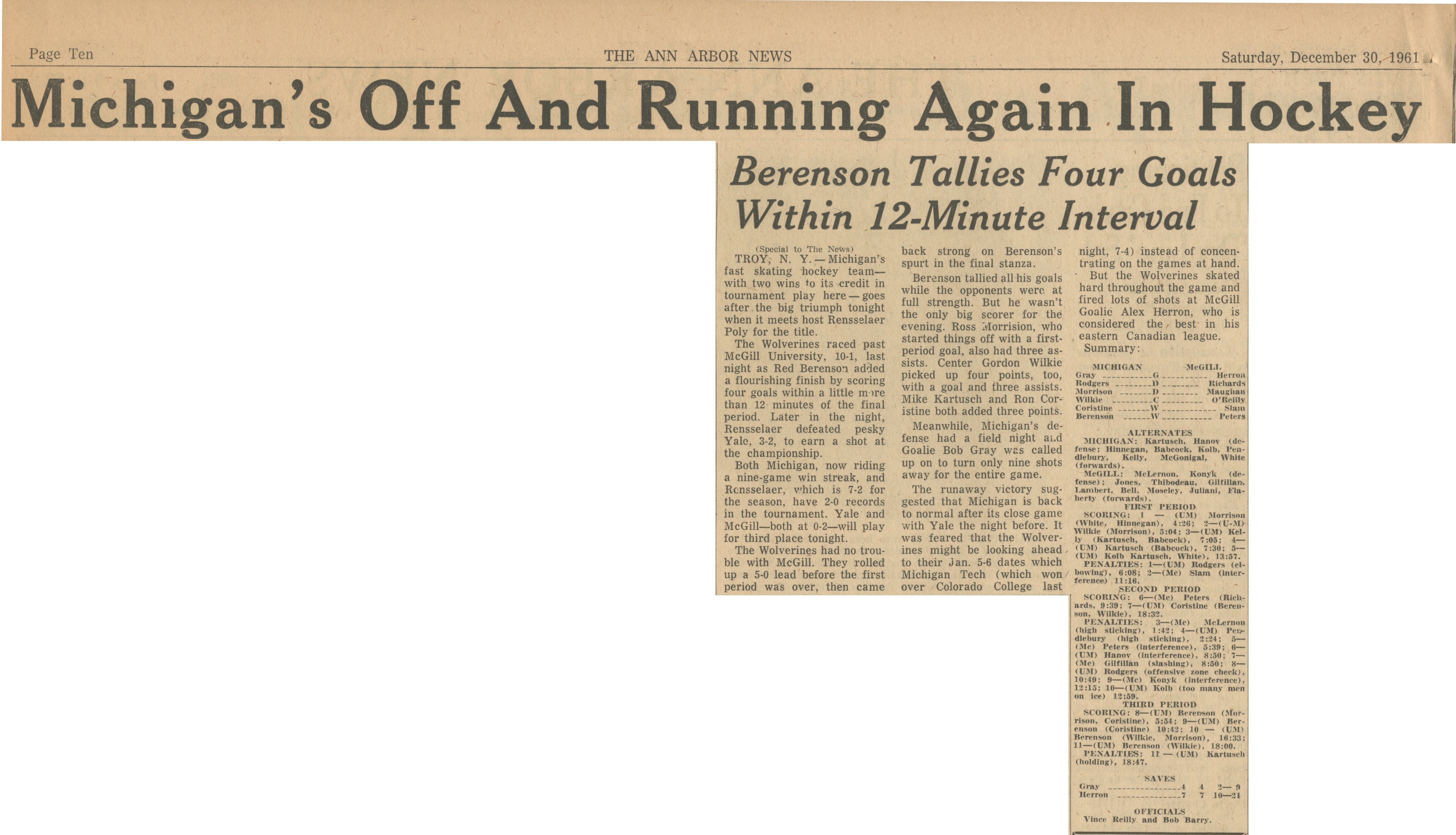
Parent Issue
Day
30
Month
December
Year
1961
Copyright
Copyright Protected
- Read more about Michigan's Off And Running Again In Hockey
- Log in or register to post comments